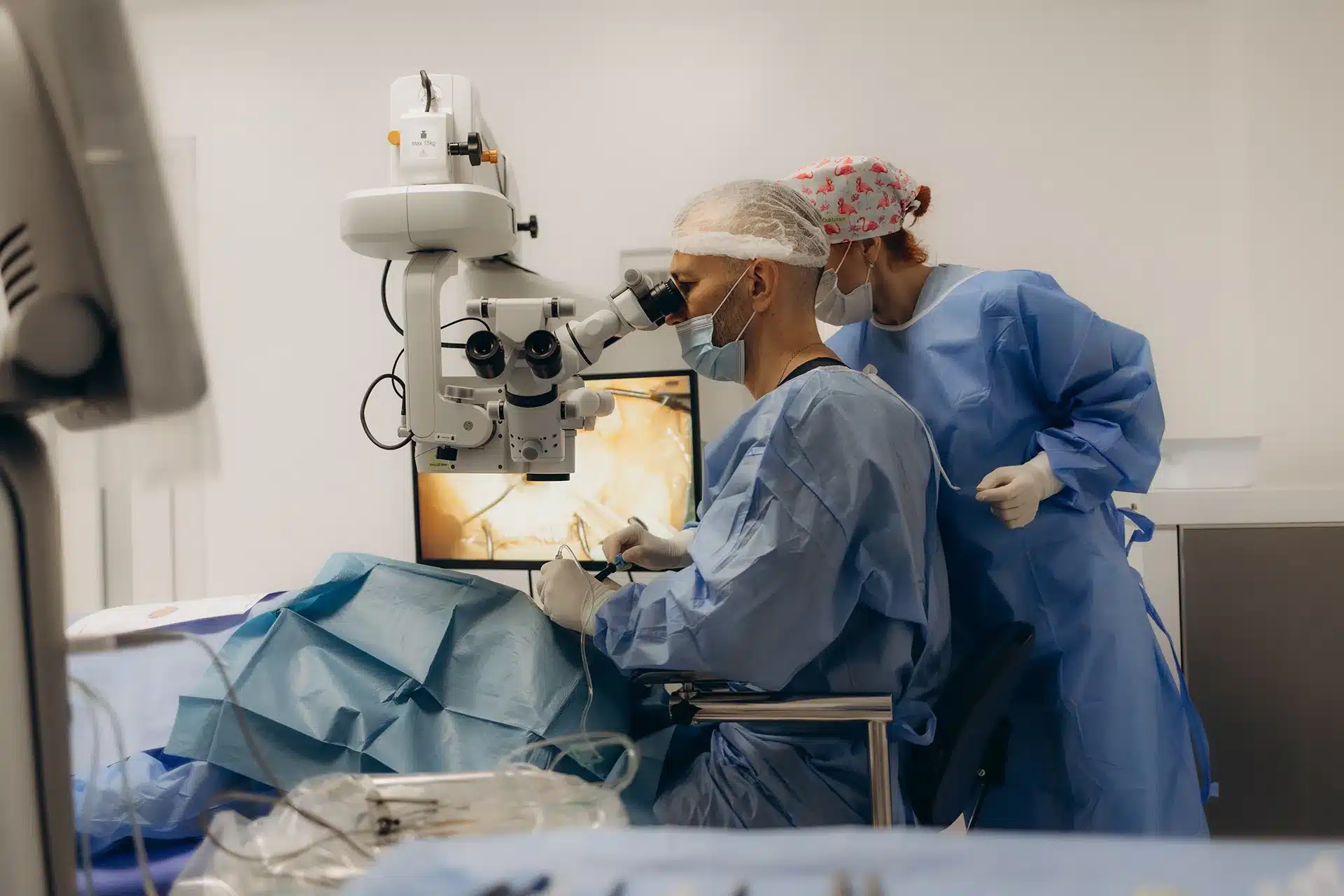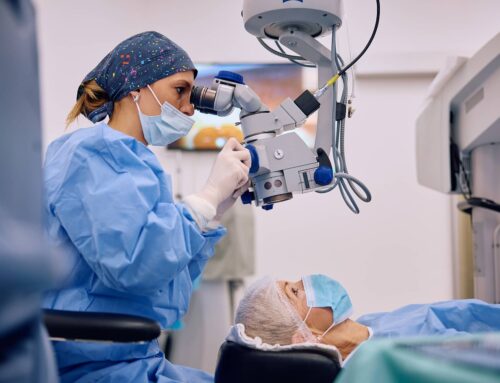Cataract surgery can restore crystal-clear vision, a life-changing prospect for nearly 4 million Americans aged 55+ every year. However, as you consider this vision-improving procedure, you may wonder: can cataract surgery cause retinal detachment? It’s a fair question to ask, given that any eye surgery carries the risk of complications that could affect other parts of your eye. Let’s explore the connection between cataract surgery and retinal detachment so that you can make an informed decision about pursuing cataract surgery.
The Basics of Cataracts & Retinal Detachment
Before we dive into whether cataract surgery can cause retinal detachment, let’s clarify what cataracts and retinal detachment are.
- Cataracts are a slow-progression eye condition that clouds your eye’s natural lens, leading to blurry vision, glare sensitivity, and difficulty seeing at night, over time. Prevalent among older adults, cataracts significantly affect one’s ability to participate in daily activities.
- Retinal Detachment is when the retina – the light-sensitive tissue at the back of the eye – separates from its underlying supportive tissue. This is a serious condition that can lead to permanent vision loss if not treated properly.
What Does The Cataract Surgical Process Look Like?
During cataract surgery, the cloudy lens is removed and replaced with an artificial intraocular lens (IOL). Modern techniques, such as phacoemulsification, use ultrasound to break up the cataract before removal. This outpatient procedure typically takes less than an hour and has a high success rate and a quick recovery time, but a lot of patients still worry about the potential for retinal detachment following their cataract surgery.
Can Cataract Surgery Cause Retinal Detachment?
The short answer is no; cataract surgery doesn’t directly cause retinal detachment. However, some studies do suggest that cataract surgery may slightly increase the risk of retinal detachment in certain patients.
Why Might Cataract Surgery Increase Retinal Detachment Risk?
Cataract surgery alters the eye’s internal structure, which can affect the vitreous gel inside the eye. These changes might lead to retinal detachment in susceptible individuals. It’s important to note that while cataract surgery can increase the risk, it’s not a direct known cause of retinal detachment.
Incidence Rates: How Often Does Cataract Surgery Increase Retinal Detachment Risk?
Recent studies provide insight into how often cataract surgery may lead to retinal detachment. Within 1 year of cataract surgery, about 0.21% of patients (1 in 500) experience retinal detachment. The risk remains elevated for years, as a 25-year study found the cumulative risk of retinal detachment was 0.27% at 1 year, increasing to 1.79% at 20 years after cataract surgery. For patients with severe myopia (nearsightedness), the annual risk of retinal detachment after cataract surgery is about 2%.
Risk Factors: Who’s More Likely to Experience Retinal Detachment After Cataract Surgery?
Several factors can increase the likelihood of retinal detachment following cataract surgery:
- Age: Younger patients (under 60) have a slightly higher risk.
- Gender: Men are more prone to retinal detachment after cataract surgery.
- Eye Anatomy: High myopic patients have a longer axial length which increases risk.
- Pre-existing Conditions: A history of retinal detachment and other eye conditions can elevate risk.
- Surgical Complications: Posterior capsule rupture during surgery significantly increases the risk.
- Lattice Degeneration: This pre-existing condition confers the strongest risk of retinal detachment after cataract surgery.
Preventing Retinal Detachment After Cataract Surgery
While you can’t eliminate the risk, you can take steps to minimize the chance of retinal detachment following cataract surgery:
- Choosing an Experienced Surgeon: Selecting a skilled cataract surgeon is crucial in minimizing the risk of complications, as they’re more likely to use advanced techniques and be able to handle unexpected issues during the procedure effectively.
- Following Post-operative Instructions: Adhere to your surgeon’s guidelines, including avoiding high-impact activities during recovery.
- Regular Check-ups and Monitoring: Attend follow-up appointments to monitor your eye health.
Recognizing Retinal Detachment After Cataract Surgery
If you’ve had cataract surgery, be on alert for a sudden increase in floaters (specks that seem to drift through your vision), flashes of light in one or both eyes and a dark curtain or shadow moving across your field of vision.
Early detection for retinal detachment using dilated eye exams, imaging techniques, and treatment options like laser therapy, cryotherapy, or more extensive procedures (scleral buckling or vitrectomy) can help prevent vision loss from retinal detachment.
Weighing The Risk For Retinal Detachment After Cataract Surgery
While the risk of retinal detachment after cataract surgery is higher than in the general population, it’s important to note that the vast majority of cataract surgeries do not result in this complication. With proper care, monitoring, and prompt treatment if needed, most patients who experience retinal detachment after cataract surgery can achieve good visual outcomes.
Guiding You to a Clearer Tomorrow
At Best Cataract Surgeons, we’re committed to providing you access to the best educational resources on modern-day cataract surgery, so you can achieve a premium vision outcome. If you have questions about cataract surgery and retinal detachment risk, we encourage you to contact a cataract surgeon near you by using our online directory, to address your concerns and schedule a consultation.











